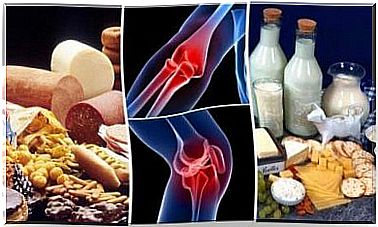Rasagiline: Under What Conditions Is This Drug Prescribed?

Rasagiline is prescribed for the treatment of Parkinson’s disease. It can be used as an add-on therapy with levodopa, the precursor of dopamine, which was previously the drug of first choice in Parkinson’s disease, or as monotherapy without levodopa.
Parkinson’s disease is a type of movement disorder and neurological disorder. It occurs when neurons don’t produce enough of a chemical of the greatest importance to the brain called dopamine. We detail how rasagiline helps with this below .
How rasagiline works on the body
This drug is a selective MAO-B inhibitor. Inhibition of MAO-B protects dopamine from extra-nervous degradation by increasing its concentration in the brain. Therefore, this drug was initially used as a supplement to levodopa. Today, however, it is used in combination at the end of the dose in patients with motor fluctuations.

Dosage and method of administration
The form of administration is the oral route, at a dose of 1 mg every 24 hours, either alone or in combination with levodopa. Rasagiline can be taken with or without food. No dose adjustment is required in elderly patients.
Rasagiline is not recommended in the pediatric population due to a lack of data on safety and efficacy in children and adolescents.
When is rasagiline contraindicated?
Treatment with rasagiline is contraindicated in the following cases:
- When there is hypersensitivity to the active substance or to any of the excipients.
- When treatment with a monoamine oxidase (MAO) inhibitor is already underway. This includes non-prescription medications and natural products, such as St. John’s wort. A minimum of 14 days must elapse between discontinuation of rasagiline administration before treatment with MAOIs or pethidine inhibitors can be started.
- In patients with moderate and severe hepatic impairment. In addition, special caution should be exercised when initiating therapy with rasagiline in patients with mild hepatic impairment. Treatment must be discontinued if mild to moderate hepatic impairment occurs.
Interaction with other drugs and other forms of interaction
As already mentioned, there are contraindications for administering rasagiline with other MAO inhibitors or antidepressants. It is primarily about the following drugs:
- Natural antidepressants such as St. John’s wort.
- SSRIs – selective serotonin reuptake inhibitors.
- IRNS – noradrenaline and serotonin reuptake inhibitors.
- Tricyclic and tetracyclic antidepressants
Co-administration with sympathomimetic drugs is also discouraged. These are mainly substances contained in nasal and oral decongestants of the nasal or oral cavity. But also for rhinitis medications containing ephedrine or pseudoephedrine.

Concomitant administration of rasagiline and dextromethorphan is also contraindicated.
The cytochrome P450 enzyme (CYP450) is involved in the metabolism of most drugs. In vitro metabolism studies have shown that the cytochrome P450 isozyme 1A2 (CYP1A2) is the major enzyme responsible for the metabolism of rasagiline.
Concomitant administration of rasagiline and ciprofloxacin, an inhibitor of CYP1A2, may alter plasma concentrations of rasagiline, and caution should be exercised when administering them.
Furthermore, there is a risk that plasma levels of rasagiline in smoking patients may be decreased due to induction of the enzyme metabolising CYP1A2.
What side effects can rasagiline cause?
The most common side effects are detailed in the list below:
- Flu or infections caused by the flu virus
- Skin cancer
- Leukopenia
- Allergy, rhinitis or conjunctivitis
- Reduced appetite
- Depression, hallucinations
- Headache
- Dizziness
- Angina pectoris
- Skin infection
- Flatulence
- Urgent urge to urinate
- Fever or feeling unwell
- Musculoskeletal pain, lower back pain, and arthritis
Is it indicated during pregnancy?
Currently, there are no clinical data on the risk of using rasagiline during pregnancy. Studies in animal models have shown no evidence of direct or indirect harmful effects on pregnancy, embryofoetal development, parturition or postnatal development.
However, caution should be exercised when prescribing rasagiline to pregnant women. Rasagiline may interfere with breastfeeding as it inhibits prolactin secretion according to experimental data.
However, it is not known whether rasagiline is excreted in human milk. Therefore, precautions should be taken when administering the drug to nursing women.









